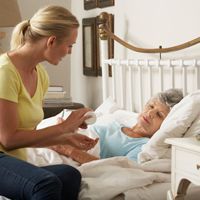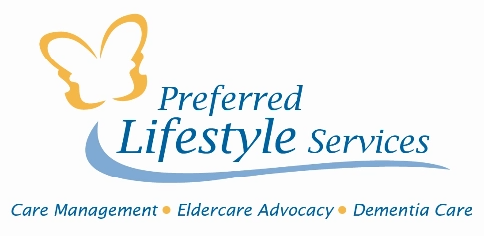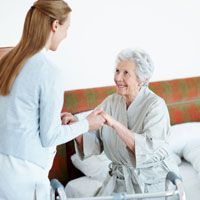Eldercare 911 Blog
Benign Forgetfulness begins in middle age. It is part of the normal aging process and does not interfere significantly with daily activities.
Normal forgetfulness DIFFERS from dementia in the following ways:
1. PLS REVIEWS IMPORTANT DOCUMENTS BEFORE INTERVIEWING THE WORKER IN PERSON. A current certificate for Home Health Aide certification in Florida. A current certificate for healthcare clearance from a board certified physician stating the worker is free of communicable diseases and is able to move appropriately for all assistance your loved one needs. A current photo I.D. issued by governmental or licensing organization. 2. PLS DISCUSS YOUR NEEDS AND WANTS WITH THE AGENCY, THEN DISCUSSES THEM AGAIN WITH THE CAREGIVER DURING THE INTERVIEW. PLS does not assume the agency has communicated our client’s needs to the worker. We start from scratch and outline all expectations and duties you expect to be carried out. We request continuity. 3. PLS SUPERVISES & MANAGES ALL DETAILS OF YOUR LOVED ONE’S CARE, INCLUDING THE CAREGIVER. PLS regularly reports to & consults with families & physicians. PLS provides caregiver instructions: MD’s, medications, telephone numbers, food preferences, care directives, enjoyable activities. PLS continuously re-evaluates your loved one’s needs.
Our program includes, but is not limited to: 24 hour/365 days a year; same day access in person or via telephone. Comprehensive written assessment identifies client’s needs & risks. Create & maintain a Customized Care Plan to improve quality of life: Clients can remain in their home even if they become ill. Reduce risk for falls and hospitalizations. Weekly visits from their Personal Nurse Care Manager. Interview home care aides, supervise & manage home care. Medication, Diet & Nutrition Management. Arrange & manage activities for mental stimulation & socialization. Schedule & accompany clients to doctors & medical appointments. Liaison with family & physicians; monthly status reports to family.

Many of us experience emotional and physical changes that do not significantly interfere with our lives. However, if you or your loved one exhibit several of these warning signs simultaneously, ask your physician for help, or for a referral to a care manager for an assessment and plan to help keep you safe. FINANCIAL WARNING SIGNS Unopened mail Unpaid bills Lapsing insurance Collection agency calls Uncharacteristic withdrawals Increase in number of checks written Increased reluctance to spend money PHYSICAL WARNING SIGNS Increased difficulty with hearing/vision Speech difficulties: slow/fast/hesitation Falls, Pain Self-imposed isolation Complaints about sleep or health issues Gait, weight, or appetite changes Change in personal hygiene, incontinence MENTAL WARNING SIGNS Memory Loss/Confusion Anxiety/Unreasonable fears Difficulty in concentrating Paranoia, Suicidal Ideation Mood changes Hallucinations/Delusions Disorientation, Crying Personality Changes

Dear Judie,
Years ago, Mom (85) and I had a wonderful discussion about her moving in with my family when she was no longer safe at home. Now she’s refusing to leave her home for my house or to move to assisted living. She says, “I’m staying right here in my own home until something happens that proves I need to move”. I’m thinking something has already happened: she keeps losing weight, isn’t always clean, and doesn’t seem interested in activities with her friends anymore. How do I know if she’s tired and eats less because she’s 85 or needs help?

Dear Judie,
My sister and I visited Aunt Lucy at her assisted living community last week. We said, “Hi Aunt Lucy;” she answered, “Come in, how nice to see you again.” Then we kissed her hello and she said “Who are you?” We answered, “Your Brother Bobby’s daughters, Patty and Joan.” She said, “I’m Lucy, but I don’t know Bobby or you.” I haven’t stopped crying since. Joan thinks she’s guilt-tripping us because we don’t visit too often. I think she’s got Alzheimer’s. What do you think?

Dear Judie:
Mom’s (83) doctor kept telling us that Mom’s only problem was that she was “getting old.” I finally got her to a neurologist who tested and diagnosed her with Moderate (Stage 2) Alzheimer’s. I almost screamed “do the tests again, you’re wrong!” But I knew in my heart he was right. She still lives alone and manages pretty well, but she’s terrified and so am I. How long can she live alone?

Dear Judie:
Dad(84) has lived independently in his Milwaukee home for years, but he’s not as mobile as he used to be, and lately he sounds a little confused. Bottom line: he needs help and I’m “it.” I don’t want to move to Milwaukee and he doesn’t want to move here. I need a plan to help me get organized before the situation spirals out of control.



